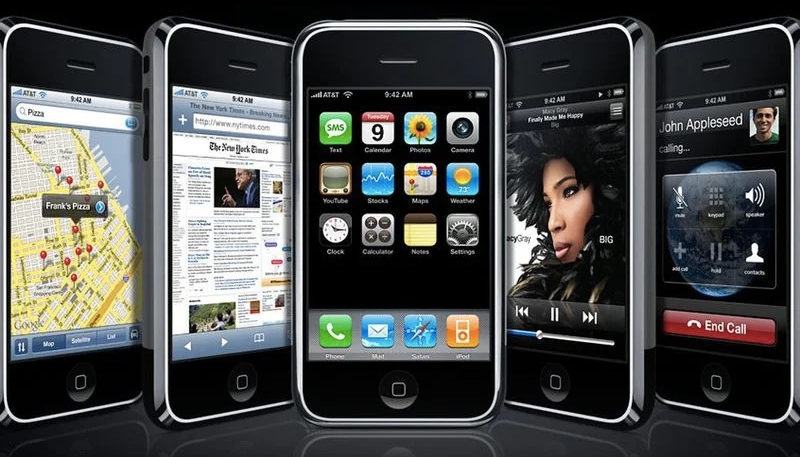Steve Jobs took the stage on January 9, 2007, and announced the upcoming release of, “An iPod, a phone, an internet mobile communicator… these are not three separate devices,” Jobs said. “Today, Apple is going to reinvent the phone,” he added. The device he was referring to, the iPhone, went on sale on June 29, 2007.
Over the last fifteen years, the iPhone has evolved, as has the mobile technology industry. The first iPhone retailed for $499. It took only 74 days after the debut before Apple announced it had sold over 1 million iPhones.
As noted by EveryMac, the original iPhone had the following features:
The original iPhone (1st Gen) is a handheld device combining mobile phone, iPod, and Internet communications functionality. It is a Quad-band GSM capable phone — 850, 900, 1800, and 1900 MHz — and features a 3.5″ display with 320×480 resolution at 163 ppi, 4 GB, 8 GB, or 16 GB of flash memory (4 GB model discontinued September 5, 2007, 16 GB model introduced February 5, 2008), built-in support for Wi-Fi (802.11b/g), EDGE, and Bluetooth 2.0, as well as an integrated 2.0 megapixel camera all packed in a stylish case a mere 0.46 of an inch thick that weighs 4.0 ounces.
Although initially announced as providing “up to” 16 hours of audio playback and “up to” 5 hours of “talk, video, and browsing”, on June 18, 2007, Apple boosted these numbers to “up to” 8 hours of talk time, 24 hours of audio playback, 7 hours of video playback, and 6 hours of web browsing. It provides “up to” 250 hours of standby time.
Perhaps most notably, the original iPhone introduced a “multi-touch” interface that allows one to control the functions of the system by dragging one or more fingers across the “optical quality” glass display.
The original iPhone also has an accelerometer that allows the device to “know” whether it is being held in portrait or landscape mode and switch automatically, an ambient light sensor to adjust screen brightness based on need, and a “proximity sensor” to turn off the display when it is held to the ear.
The iPhone has evolved into an entire ecosystem, thanks to iOS and the App Store. A cottage industry has grown up around the iPhone, with Apple and numerous third-party accessory makers developing cases and other accessories for the handset.


